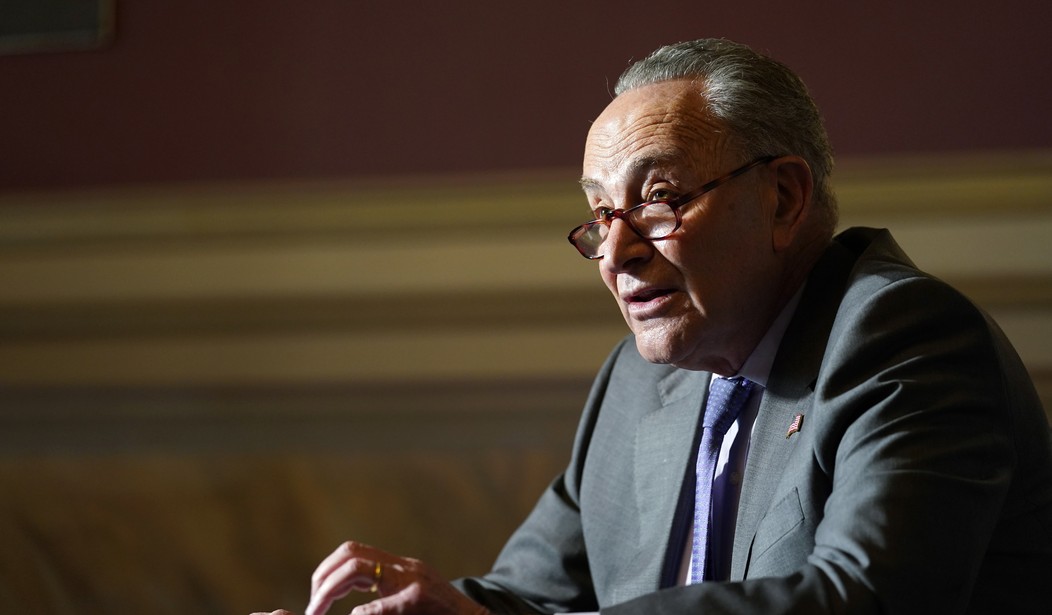The late Senator Eugene McCarthy is reported to have discouraged freshman legislators from learning the rules. "The House rules are impossible to understand," he is said to have advised. "The Senate rules are easy, but the Senate never follows them."
That said, conversations currently surrounding the filibuster reflect a remarkable amount of dangerous misinformation about a "simple" concept.
Democrats have convinced themselves that the filibuster is the only thing that stands in the way of turning America into a one-party dystopian Banana Republic, much as they have done with California.
But, if they reinforce the precedent that the Senate rules are totally irrelevant -- and that getting 51 votes is all that matters in the Senate -- they may find out that a post-apocalyptic Senate is a dangerous place to be.
For all of the embrace of the "nuclear option," there is an incredible ignorance about what the "nuclear option" is. The "nuclear option" stands for the proposition that the Senate Rules -- all of them -- are irrelevant if 51 senators decide to do otherwise. In effect, there are no rules. The majority simply cheats.
Rule XXII of the Standing Rules of the Senate provides that a filibuster of a rules change can be ended only by a vote of 67 senators. This would be true for an abolition of the filibuster; but it would also be true for changes which would supposedly mandate a Mr. Smith Goes to Washington "talking filibuster."
Democrats cannot, as they suppose, make some rules irrelevant, but not others. They found this out in 2013, when they tried to obliterate the filibuster in order to pack the D.C. Circuit Court of Appeals -- while purporting to exempt Supreme Court nominees from the precedent. They found out, to their dismay, that the precedent they had created was used by Republicans to confirm three justices to the Supreme Court.
Recommended
So if, in the "Wild West Senate," you can't filibuster, you also can't block any amendment, however toxic or irrelevant. The precedents prohibiting third, or fourth, or fifth degree amendments also become advisory in the face of a popular amendment.
So you want to block Eric Swalwell from having access to classified information? Or prohibit anyone from voting in the Senate if they raised money for a bail fund for last summer's rioters and insurrectionists? Or create a lawsuit allowing the member of a minority group to invalidate any gun control law that has a disproportionate impact on minorities? Or overturn state gun bans of semi-automatic firearms? Or ban anyone who has not tested negative for COVID from being allowed to enter the United States across the Mexican border? Or require the president to annually submit to a mental test -- with results made public?
No amendment tree can prohibit any of these amendments from being offered, once the rules don't matter.
Mitch McConnell has also promised that there would be no more unanimous consent agreements for routine matters. So, every day, the Senate would spend hour after hour trudging through arcania.
And, for all of this mess, Democrats have no clear idea of what the parliamentary "end game" is for their "talking filibuster."
Currently, if no senator seeks recognition, the Chair can "put the pending question" to the Senate.
How would Democrats change this? Would they prohibit quorum calls? Supposedly, televising Senate sessions was going to eliminate these. But it is hard to imagine a Senate so tightly scripted that large gaps would not occur.
Would Democrats tightly enforce the "two speech rule"? They can do that now. There are broad exceptions to this rule. And, if there were not, it would be impossible to manage the Senate floor.
What about eliminating the filibuster of the motion to proceed? The ratio of "outrage-to-practical-effect" would be substantial if final passage can still be blocked by 41 votes.
Probably, any rules change to achieve a "talking filibuster" would consist of a clumsy tool with unintended consequences.
So, Democrats, be careful what you wish for. "Outrage without a plan" is what led to the French revolution. And guess what happened to them?
Michael Hammond is the Legislative Counsel for Gun Owners of America, a grassroots lobby organization representing more than two million gun owners.

























Join the conversation as a VIP Member